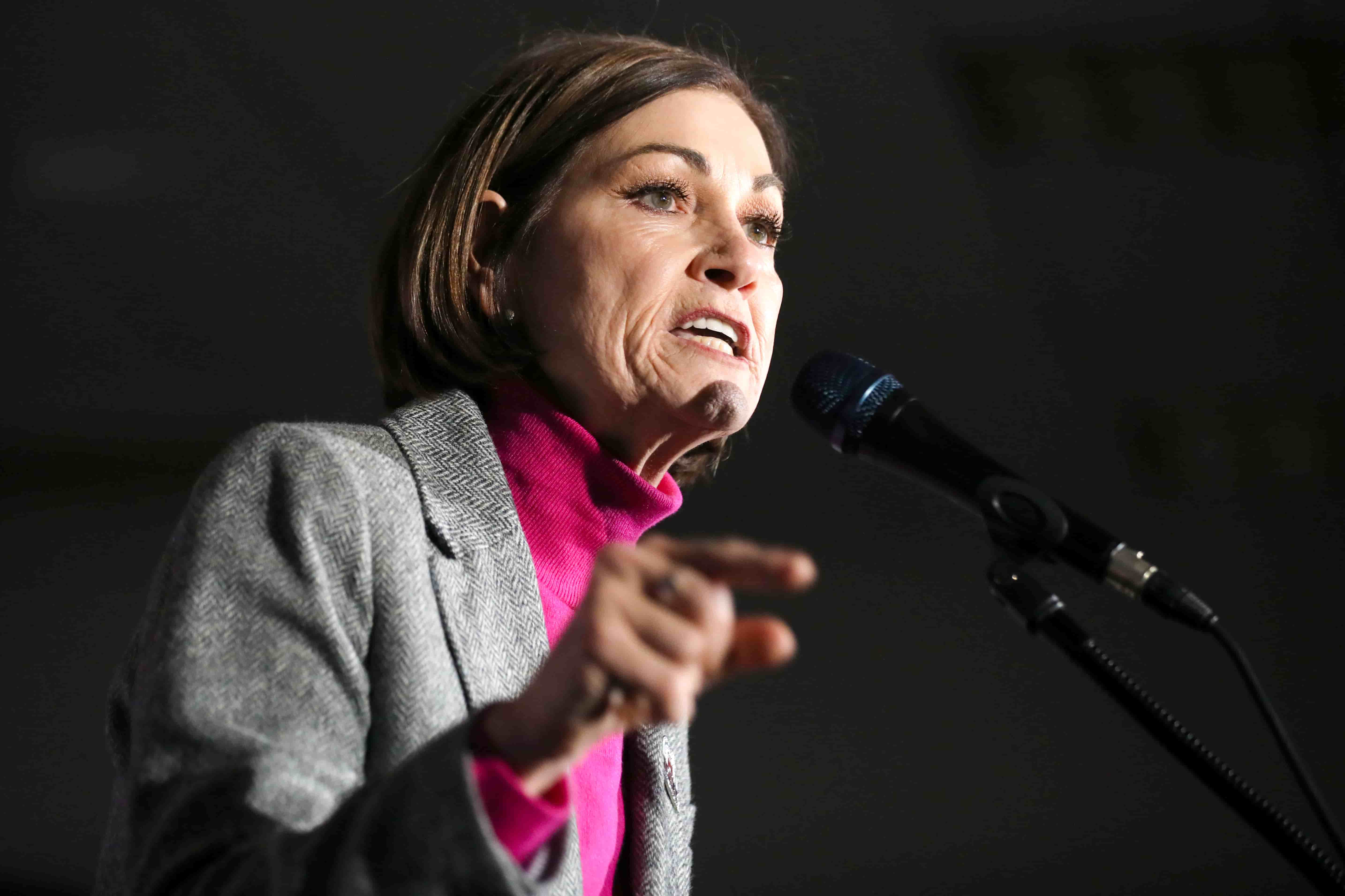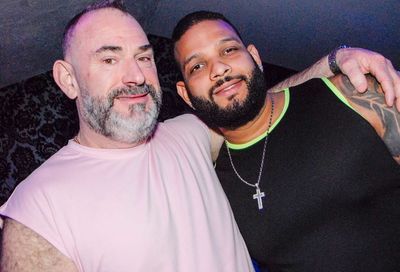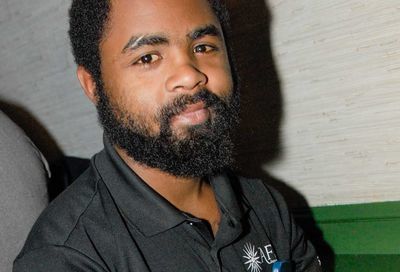U.S. Senate committee approves slate of anti-LGBTQ judges
Civil rights advocates criticize Republicans for pushing through some of Trump's most controversial nominees

The U.S. Senate Judiciary Committee voted to approve the nominations of 23 Trump appointees to the executive and judicial branches, including six nominees who have gained notoriety for their past opposition to civil rights protections for the LGBTQ community.
The five judicial nominees with questionable LGBTQ records were: Kyle Duncan, nominated for a seat on the 5th U.S. Circuit Court of Appeals; David Stras, nominated for the 8th U.S. Circuit Court of Appeals — and someone thought to be a “short-list” nominee for a future seat on the U.S. Supreme Court; Matthew Kacsmaryk, a nominee for the U.S. District Court for the Northern District of Texas; Thomas Farr, a nominee to the U.S. District Court for the Eastern District of North Carolina; and Mark Norris, a nominee to the U.S. District Court for the Western District of Tennessee.
Stras was approved by a 13-8 vote, with two Democrats, Sheldon Whitehouse (D-R.I.) and Amy Klobuchar (D-Minn.), voting in favor of his nomination. Duncan, Kacsmaryk, Farr, and Norris were approved on party-line votes of 11-10.
LGBTQ advocates and their allies, mostly Democrats, also objected to the confirmation of Eric Dreiband to be Assistant Attorney General of the Civil Rights Division. That nomination was approved by the committee on a party-line vote as well. Dreiband’s nomination was previously approved on an 11-9 vote in October, but had to be reconsidered by the committee after he never received a floor vote.
All nominations now head to the full Senate for consideration. Republicans control the chamber 51-49, meaning two Republicans would have to vote with all Democrats to defeat any nominees they feel are unqualified or unable to be objective wen hearing cases involving LGBTQ plaintiffs or defendants.
Several LGBTQ advocates, including the Human Rights Campaign, previously expressed objections to the nominees. David Stacy, HRC’s government affairs director, said the nominees “pose a threat to the rights and safety of LGBTQ people across the nation and should not be entrusted with these important positions.”
Duncan is infamous among members of the LGBTQ community for representing the Gloucester County School Board in its fight with transgender student Gavin Grimm over his ability to use the boys’ restroom at school. Duncan defended Louisiana’s same-sex marriage ban and penned an amicus brief on behalf of Louisiana and 14 other states, arguing that their marriage bans did not undermine the Supreme Court’s 2013 ruling in Windsor v. United States. He also argued against allowing a same-sex couple married in New York to have their names added to their adopted child’s birth certificate.
Stras has been flagged by LGBTQ advocates for his “originalist” philosophy, and his criticism of the U.S. Supreme Court’s decision legalizing marriage equality. He has called into question the court’s 2003 ruling declaring state sodomy laws unconstitutional. Stras also joined an opinion that allowed a highly misleading characterization of the 2012 anti-LGBT Minnesota Marriage Amendment referendum to appear on the ballot, holding that the state legislature had the authority to override the judgment of the Minnesota Secretary of State, who is obligated to ensure that titles and descriptions of ballot initiatives reflect the actual content of the measure.
Farr was flagged by civil rights groups for his evasiveness in answering whether he knew in advance about a 1990 postcard campaign designed by North Carolina Republicans to intimidate black voters, a former DOJ investigator claims.
Kacsmaryk has been criticized for working for anti-LGBTQ organizations on various cases, and writing op-eds that oppose same-sex marriage, LGBTQ protections, and the rights of transgender people.
Norris, a former Tennessee state senator, has been criticized for sponsoring anti-LGBTQ measures during his time in the legislature, and for supporting Tennessee’s lawsuit challenging the Obama administration’s interpretation that Title IX’s protections apply to transgender students.
Dreiband, the nominee to head the Justice Department’s Civil Rights Division, has been criticized by LGBTQ advocates for his defense of North Carolina’s HB 2 law restricting transgender people’s ability to access public restrooms. He also represented nonprofit organizations seeking religious exemptions from having to provide insurance coverage for contraception under the Affordable Care Act. At his confirmation hearing, Democratic senators were particularly alarmed by his answers to questions such as whether he had been in communication with people who are considered far-right political agitators and to what degree they may influence his decisions if confirmed.
Sharon McGowan, the director of strategy at Lambda Legal, criticized the Judiciary Committee for approving some of the more controversial nominees despite various people who appeared before the committee to testify against them.
“What we saw this morning in the Senate Judiciary Committee was quite astonishing. On one side of the room sat civil rights leaders, parents of trans kids, and members of the Congressional Black Caucus all united behind Senate Democrats in their effort to stop a slate of President Trump’s most divisive and appalling nominees to the executive and judicial branches,” McGowan said. “In stark contrast on the other side of the room sat a cowardly group of Senate Republicans, led by Chairman Grassley, abdicating their responsibilities and telling every face in the crowd that their voices don’t matter.
“If Senate Republicans refuse to be a check on this Administration’s most bigoted impulses, the American people will,” added McGowan. “Whether it’s Jeff Mateer, Kyle Duncan, Matthew Kacsmaryk, or Eric Dreiband, Lambda Legal is ready to fight this Administration’s plan to pack the courts and agencies with people who have made their careers opposing civil rights and equality for all, particularly LGBT people.
“We expect that Senate Majority Leader Mitch McConnell will soon bring this fight to the Senate floor, where he and every Republican Senator will have to decide whether they are going to continue to embrace Trump’s racist, homophobic, transphobic and misogynistic agenda, or whether they are going to listen the voices of the American people who know that bigotry and hate have no place in our country and our courts,” McGowan concluded.
Sherrilyn Ifill the president and director-counsel of the NAACP’s Legal Defense Fund, called all Farr, Norris, Stras and Dreiband “part of a coterie of anti-civil rights nominees” put up by the Trump administration.
“On Monday, senators on both sides of the aisle celebrated Martin Luther King, Jr. and his tireless work to advance the cause of racial justice in the United States,” Ifill said. “Days later, however, when faced with an opportunity to honor Dr. King’s legacy with more than mere lip service, Republicans in the Senate Judiciary Committee instead voted to advance the nominations of three federal court judges — Thomas Farr, Mark Norris, David Stras — and Eric Dreiband as Assistant Attorney General for Civil Rights. Each nominee has a clear and unequivocal history of hostility to civil rights.
“We must conclude that this is a deliberate and shameful plan to degrade our judiciary and destroy the norms that have governed the appointment of federal judicial nominees,” Ifill added. “The Senate’s Constitutional obligation to advise and consent on nominations is one of our last safeguards, and the Senate must do better than today’s deeply disappointing Judiciary Committee vote. Now the ball falls in the court of the full Senate. We call on the full Senate to stand up for the American people.”
Support Metro Weekly’s Journalism
These are challenging times for news organizations. And yet it’s crucial we stay active and provide vital resources and information to both our local readers and the world. So won’t you please take a moment and consider supporting Metro Weekly with a membership? For as little as $5 a month, you can help ensure Metro Weekly magazine and MetroWeekly.com remain free, viable resources as we provide the best, most diverse, culturally-resonant LGBTQ coverage in both the D.C. region and around the world. Memberships come with exclusive perks and discounts, your own personal digital delivery of each week’s magazine (and an archive), access to our Member's Lounge when it launches this fall, and exclusive members-only items like Metro Weekly Membership Mugs and Tote Bags! Check out all our membership levels here and please join us today!




























